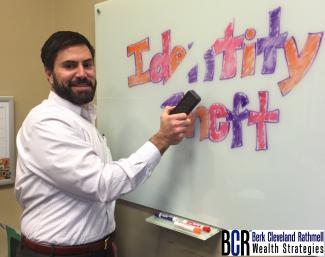
What To Do If Your Identity Is Stolen
A client called us recently saying he received a letter in the mail from a credit card company asking him to confirm information for a new account. He had no idea what they were talking about since he had never done any business with this company, so he called us to ask what to do.
Unfortunately, receiving this kind of phone call isn’t nearly as uncommon as it used to be for financial advisors everywhere. In 2016, identity theft rose a record 16% over the previous year, with thieves victimizing over 15 million Americans. With this type of criminal running rampant, it’s important to know what to do if one of them targets you.
Since the gentleman who called us was a client of ours, he took the right first step by calling us immediately. We helped him understand what was happening and walked him through the things we needed to do to address the situation.
Here are some critical steps you must take if you think your identity may have been stolen:
1. Take action immediately. It's important to act fast to minimize any potential liability.
2. Keep complete records of all contacts you have with various organizations. Document the date and time of each phone call, what number you called, the name of the representative you spoke to, what information they took, what their instructions were, and when you carried them out. Write down even the smallest detail; you'd be surprised how helpful it is to have this kind of log and how many times you'll refer to it.
3. Place a fraud alert on your credit report through any one of the three major credit bureaus: TransUnion, Equifax, or Experian. The bureau you file the alert with is required by law to provide the information to the other two bureaus. When a fraud alert is active on your account, potential creditors are supposed to contact you or take other measures to verify your identity before opening a new account in your name, which makes it more difficult for thieves to use your identity.
4. Consider implementing a credit freeze. This completely prevents issuance of new credit and blocks access to your credit report to anyone other than creditors you already have accounts with. There are laws governing how this is handled, and you may have to have a police report to take this step in some states.
5. Obtain copies of your credit reports. We recommend pulling a report from all three bureaus. Examine them closely to make sure there are no accounts that have been opened without your knowledge. If you use a service like Credit Karma or Wallet Hub, this step is easy, and you can monitor your credit score as it is updated at least monthly, and typically even more often.
6. If you receive a letter requesting a phone call regarding an account, be careful about using the contact information provided in it. Don't assume that the letter is legitimate. Look up the company's phone number yourself or call the number on the back of your credit card.
7. Be wary about sharing your personal information with any representative. If someone asks for your whole social security number or credit card/account number, never give it to them. Legitimate creditors already have that information, and they typically will ask you to provide only the last four digits to verify your identity.
8. Close any account that may have been compromised and dispute any unauthorized transactions. Many banks have online dispute forms, but don't spend unnecessary time searching for them. The fastest way to do this is to call the bank or credit card company. Ask for a confirmation letter confirming the accounts are closed and you will not be liable for any fraudulent charges that may occur. Ask when you can expect to receive it, and then follow up if you don't receive it on time.
9. Change passwords and pins for all your accounts, even those that haven't been compromised. Use new passwords for any new accounts you may open.
10. File a complaint with the Federal Trade Commission and with your local police.
Above all, remember that steps 3 and 4 – fraud alerts and credit freezes – will not stop thieves from opening new accounts that don't require a credit check. Monitor all your consumer accounts, including any reports of unpaid bills, and continue to monitor your credit closely to ensure further fraudulent activity doesn't occur.

